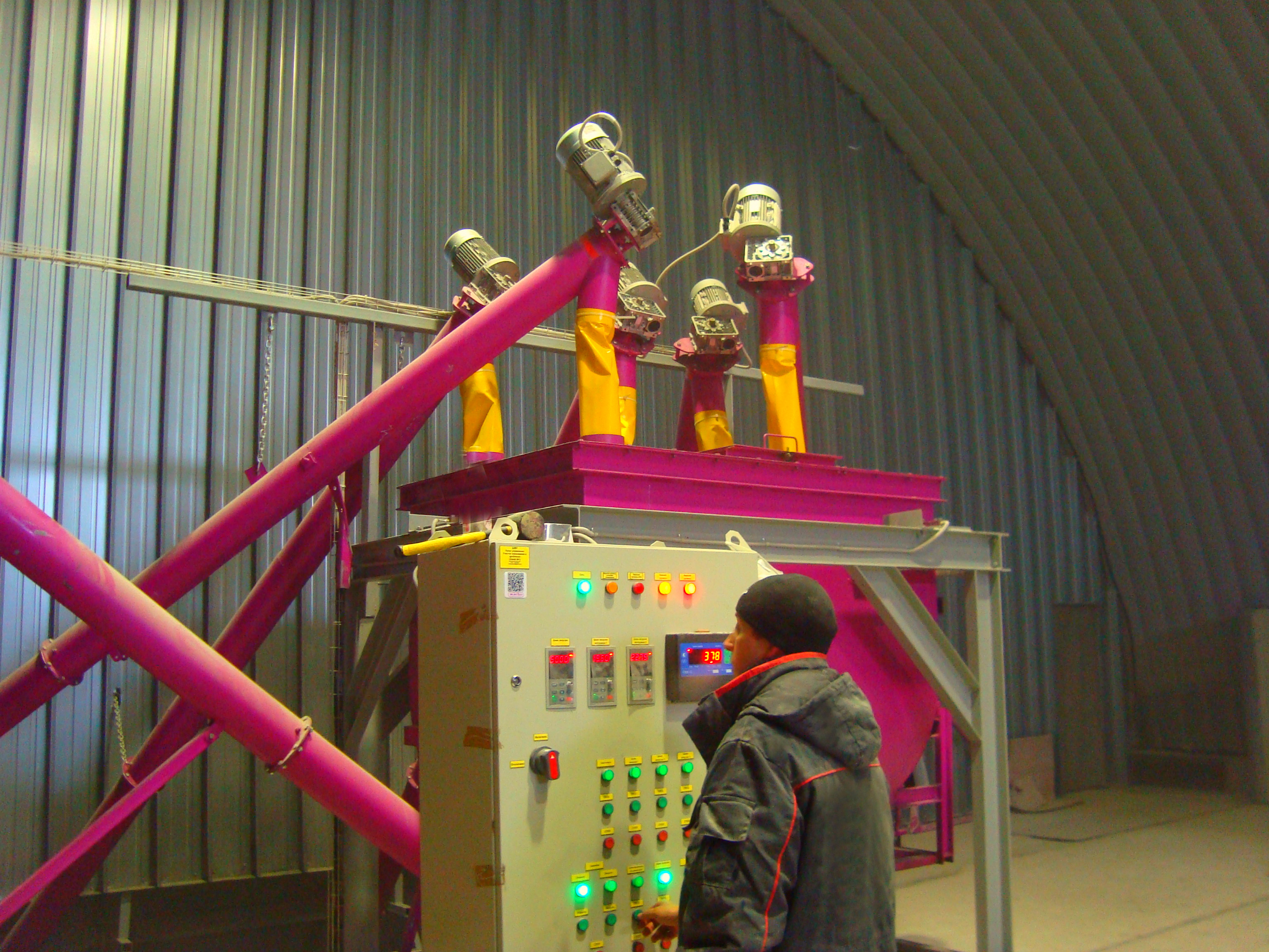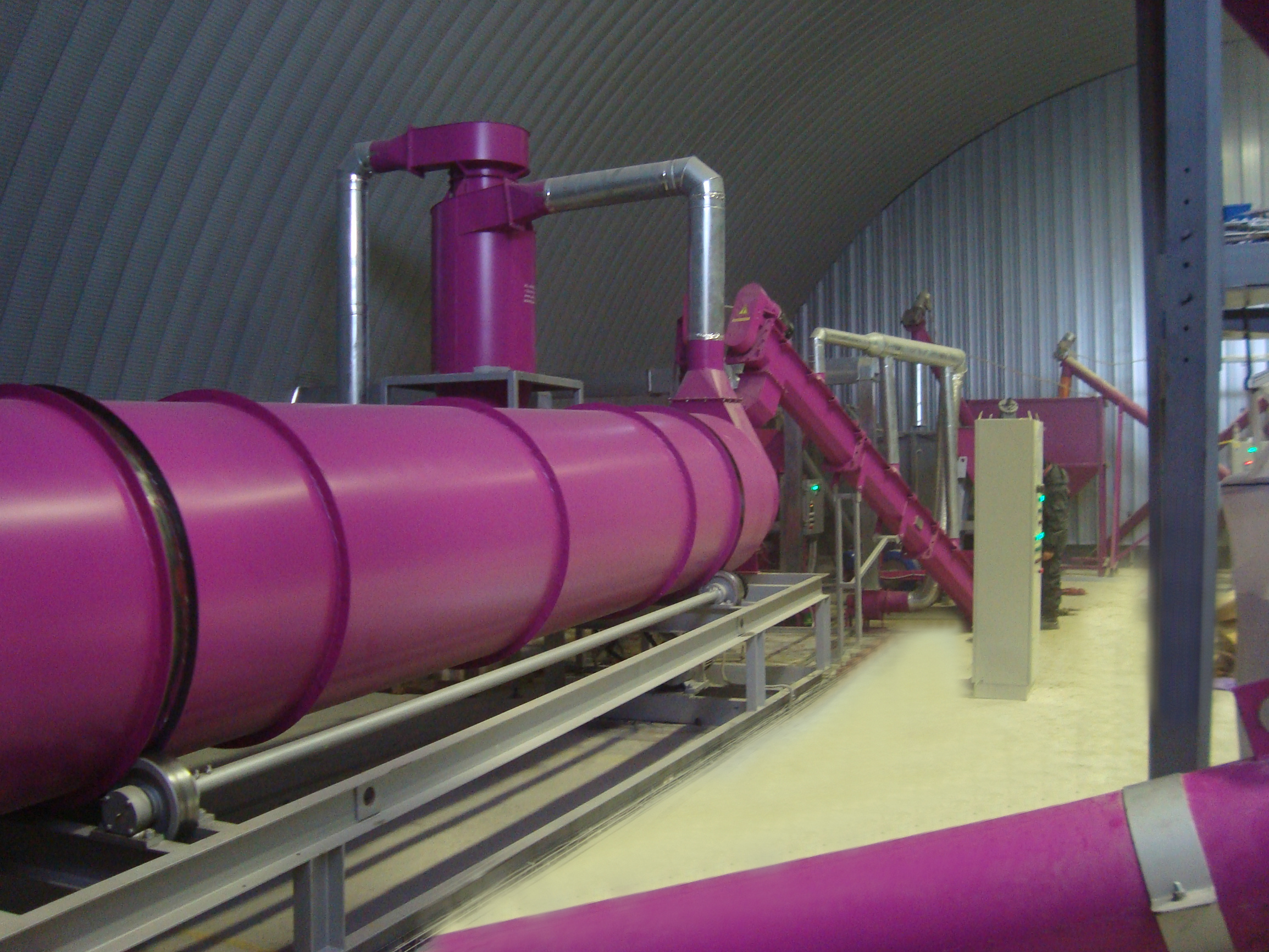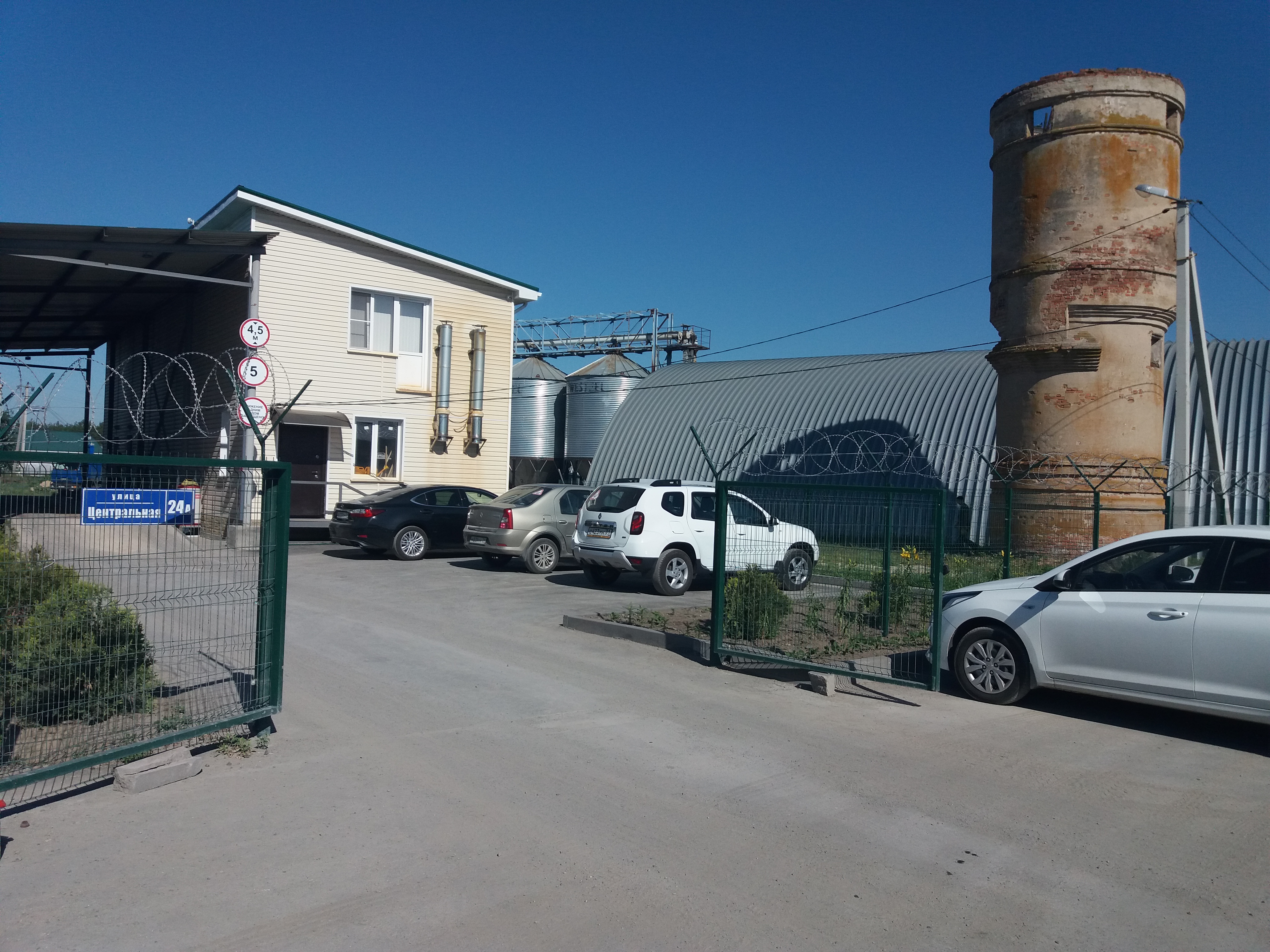

Soybeans, although they have high nutritional value, cannot be fed raw due to the fact that they contain anti-nutritional biologically active substances. These are mainly protease inhibitors (trypsin and chymotrypsin) and heme glutins (lectins, saponins), as well as substances that cause allergic, endocrine and rachitic disorders. These antinutrients can be reduced to safe concentrations by heat treatment. Full Fat Extruded Soybean is a feed product made from full fat soybeans that have been extruded to the point where nothing is extracted or added.
The technology for producing full-fat extruded soybeans involves extrusion, which occurs with excess heat generated as the soybeans pass through the extruder barrel and pressure.
The extrusion process takes less than 30 seconds. During this time, the temperature in the extruder barrel rises to 110-130 Cº. This is enough to neutralize the anti-nutrients contained in soybeans, and due to the fact that the maximum temperature is maintained for only 5-6 seconds, there is no destruction of amino acids in the product.
In the extruder barrel, as a result of pressure and grinding processes, partial destruction of the cell walls occurs. When soybeans exit the extruder, as a result of a sharp pressure drop, the cell walls are completely ruptured. This increases the digestibility of nutrients, including fat, and releases tocopherols (natural antioxidants) and lecithins (phosphatides necessary for the normal functioning of the nervous system and brain and the absorption of fat).
Full-fat soybeans have a huge impact on poultry nutrition. The high content of linoleic acid has a beneficial effect on increasing egg size. Full-fat soybean is especially useful for sows in the last stage of pregnancy and in diets during the lactation period to increase the viability of young animals. It is very good to feed this food to growing piglets. Extrusion reduces the degradability of protein in the rumen, which increases the supply of amino acids to the small intestine and increases the efficiency of soybean utilization. In ruminants, amino acids are more easily digested from extruded soybeans than from soybeans. It is very effective to include full-fat soybeans in feed for pets. It can make up up to 30% of the diet of cats and dogs. Full-fat soybeans are also beneficial for fish that live in cold water (for example, salmon), since they are better suited to process it than food high in carbohydrates. Adding full-fat soybean to rabbit queens during lactation helps to increase the survival rate of young animals. The oil contained in it is absorbed especially well by rabbits.
The high energy value and large amount of protein in extruded full-fat soybeans make it an important component for inclusion in the diets of animals and birds. The crude protein content of full-fat extruded soybeans is 32%. Extrusion increases the digestibility of proteins and makes amino acids more accessible due to the destruction of secondary bonds in protein molecules. Due to the relatively low temperatures and short duration of heat treatment, the amino acids themselves are not destroyed.
Nutritional table and chemical composition of FES (full fat extruded soybeans)
indicators
Unit change Soybean full fat extruded
Crude protein, %
34 37
Exchange. energy (poultry) Kcal/100 gr. 325.00 350.00
Exchange. energy (bird) MJ/kg. 13.60 14.64
Exchange. energy ( pig) MJ/kg. 16.31 16.02
Exchange. energy (KRS) MJ/kg. 12.61 13.26
Feed units of 100 kg. 147.00 144.00
Dry matter % 88.00 88.00
Crude protein % 34.00 37.00
Digestible protein (pig) % 27.88 30.31
Convertible protein (cattle) % 30.60 33.30
Crude fat % 16.6 18.50
Crude fiber % 7.00 5.50
Raw ash % 4.20 4.00
Linoleic acid% 8.25 9.20
BEV % 26.20 23.00
Starch% 2.56 2.24
Sugar % 9.21 8.08
Amino acids, gross content.
Lysine % 2.10 2.19
Methionine % 0.44 0.48
Met.+cystine % 0.98 0.99
Threonine % 1.37 1.49
Tryptophan % 0.37 0.40
Arginine % 2.62 2.85
Digestible amino acids (poultry)
Lysine % 2.10 2.19
Methionine % 0.37 0.40
Met.+cystine % 0.72 0.78
Threonine % 1.10 1.20
Tryptophan % 0.30 0.33
Argenine % 2.01 2.18
Digestible amino acids (pigs)
Lysine % 1.80 1.88
Methionine % 0.35 0.38
Met.+cystine % 0.76 0.76
Threonine % 0.98 1.05
Tryptophan % 0.28 0.30
Argenine % 2.20 2.39
Minerals.
Calcium % 0.22 0.22
Total phosphorus % 0.65 0.65
Assimilable phosphorus % 0.26 0.26
Sodium % 0.03 0.03
Chlorine % 0.03 0.03
Potassium % 1.50 1.50
*Incomplete chem. composition, basic indicators for balancing the diet.
Phosphorus digestibility, % Amino acid digestibility, %
35 Bird 92
Pigs 90
Typical inclusion rates(%)
Chickens Pigs
young animals 22.0 young animals 20.0
growing 28.0 growing 25.0
laying hens 20.0 fattening 25.0
Turkey sows 28.0
young animals 22.0 Ruminants
finishing 28.0 calves 20.0
breeding poultry 20.0 dairy cows 25.0
Ducks/geese fattening 25.0
juveniles 20.0 Fish
rearing 20.0 trout, salmon 10.0
breeding poultry 15.0 carp, catfish 20.0
shrimp 10.0









You can watch a video of the soybean extrusion process here: https :// www . youtube . com / watch ? feature = player _ detailpage & v = gpEIuf 8 sJKs
Stationary foundation scales for weighing vehicles weigh vehicles with a carrying capacity of up to 60 tons (trucks, trailers, semi-trailers, tanks, etc.) to identify discrepancies during acceptance and shipment of various cargo.





